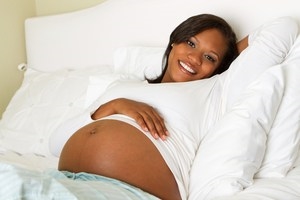Immediately after birth, the baby enters a world inhabited by many microorganisms. Many of them are considered pathogenic, but there are also beneficial bacteria. To provide immune protection, the newborn's gastrointestinal tract must be populated with beneficial microorganisms. But in some situations (taking antibiotics, inflammatory processes), "harmful" bacteria begin to develop in the body of the crumbs. All this leads to dysbiosis, which can be dealt with with the help of various preparations containing bifidobacteria.

Does the baby need bifidobacteria?
Bifidobacteria, lactobacilli and Escherichia coli are the main microorganisms that inhabit the gastrointestinal tract of a newborn, their share is 95%. Also in the baby's body there are so-called conditionally pathogenic microorganisms, which include:
- mushrooms of the genus Candida;
- klebsiella;
- clostridia.
Such bacteria begin to multiply if the number of bifidobacteria decreases, and provoke infectious processes in the body of the crumbs.
It is important to remember that the intestines of a newborn are colonized by beneficial bacteria gradually, and therefore temporary dysbiosis can often occur. It is expressed by frequent regurgitation, loose stools and tummy problems. This state of the baby's body does not require treatment.
True dysbiosis occurs when the proportion of pathogenic bacteria begins to exceed the number of beneficial microorganisms. Rememberthat dysbiosis (another name for the disease) is not an independent disease, it accompanies various inflammatory processes in the child's body.
We read in detail about dysbiosis
In what cases does the baby need help in the form of taking medications with bifidobacteria? This can be safely attributed to:
- persistent intestinal colic;
- bloating;
- frequent regurgitation (in detail about frequent regurgitation);
- poor weight gain (weight gain rates);
- the child has diarrhea or constipation (see about diarrhea / constipation);
- diabetes mellitus or infectious diseases in the mother;
- premature or complicated labor;
- gestosis during pregnancy;
- artificial feeding (or mixed).
Babies who are breastfed receive all the beneficial microorganisms through the mother's milk, and therefore rarely need to take such drugs (about the drugs below).
How to choose the right drug?
Of course, any drug should be used as directed by a doctor, especially for newborns. But any loving parent should at least at the minimum level know the types of preparations containing beneficial bacteria and their beneficial properties.
So, there are two types of medicines containing beneficial microorganisms:
- prebiotics - preparations that contain a ready-made set of beneficial bacteria;
- probiotics - drugs that can stimulate the growth of bifidobacteria in the intestines of a newborn and suppress pathogenic microorganisms.
For babies, the following drugs are used:
- Bifidumbactrin. It is used to treat rickets, diathesis and acute intestinal infections. It is also shown when switching from natural feeding to artificial feeding. The preparation contains live bifidobacteria and lactose, therefore, care should be taken if the child has allergies. Analogs of this agent are Bifiform Bifidumbacterin-forte;
- Atzilact. It is used for intestinal infections and in the complex therapy of atopic dermatitis. The drug does not contain lactose, and therefore it is recommended for use in children with lactase deficiency. As part of the product - lactobacilli;
- Linex. The drug is complex, contains bifidobacteria and lactobacilli, lactose and potato starch. It is used in the treatment of dysbiosis. An analogue of the remedy is Lactomun.
Liquid probiotics are preferable because they take effect as soon as they enter the body.
Preparations containing bifidobacteria can be given to infants for prophylaxis. There will be no harm from this. But if there is any disorder on the part of the baby's gastrointestinal tract, then such funds should be taken on a regular basis. It is advisable to give the drug to the child about half an hour before meals in the dosage prescribed by the attending physician. Medicines released in the form of dry powders are pre-diluted with boiled water according to the instructions.
Watching the video:
[sc: ads]
Mom mistakenly gave the child 5 ampoules of bifidumbacterin, what should I do?



